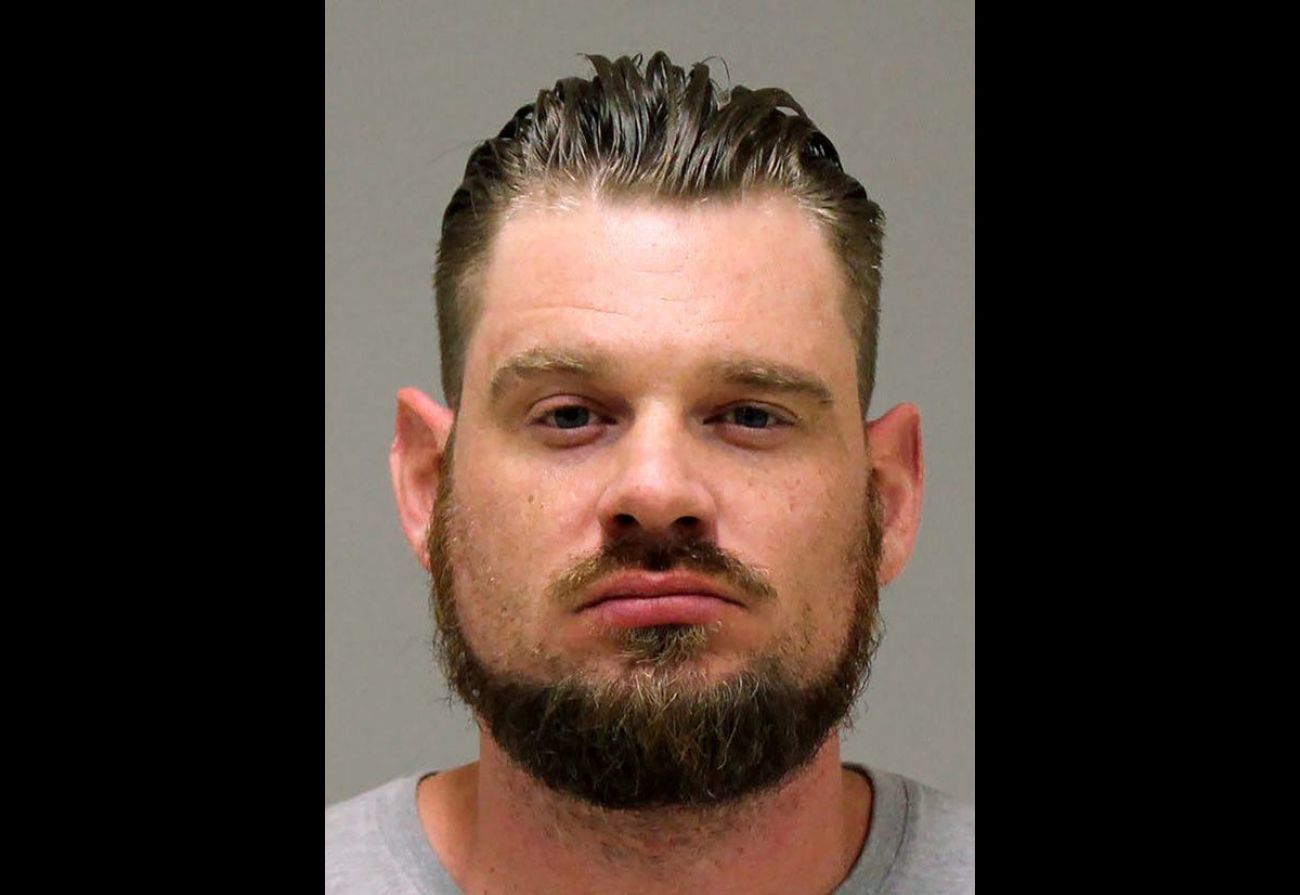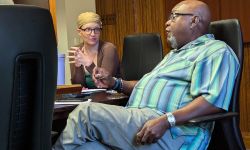Plotters or dupes? Gretchen Whitmer kidnapping case goes to jury.

“Boogaloo" extremists who contemplated killing Michigan Gov. Gretchen Whitmer before physically surveilling her vacation home as part of a final plan to kidnap her and spark a second civil war?
Or gun enthusiasts whose anger over COVID-19 policies would have been limited to “stoned crazy talk” were it not for FBI informants and undercover agents who egged them into a kidnapping plot?
It's now up to a federal jury of 12 men and women to decide.
Related:
- Whitmer kidnapping trial: Accused plotter denies role as case nears jurors
- Star witness: Whitmer kidnap plotters wanted ‘boogaloo’ war to stop Biden
- Whitmer kidnaping trial starts: ‘Second civil war’ or ‘crazy talk’?
Attorneys completed closing arguments Friday afternoon in the closely watched trial of four men accused of conspiring to kidnap Whitmer from her vacation home in 2020 and blow up a local bridge to slow any police response.
Adam Fox of Wyoming, Mich., Daniel Harris of Lake Orion, Brandon Caserta of Canton Township and Barry Croft from the state of Delaware face up to life in prison if convicted on kidnapping and weapon of mass destruction charges.
Prosecutors urged jurors to focus on the stated intention of defendants, as documented in hundreds of secret recordings by FBI informants, videos, online chats and testimony from two other admitted plotters who pleaded guilty to kidnapping charges and testified the conspiracy was real.
“You’ve heard what was in their mind when they thought nobody was listening,” Assistant U.S. Attorney Nils Kessler said in his closing argument.
“You know what was in their hearts. They said they wanted to kidnap the governor. They trained to kidnap the governor. They cased her house in the middle of the night. They mapped it out. They planned it. They gathered weapons and bombs.”
Defense attorneys contend their clients never agreed to an actual plan, and to the extent they discussed one, they were entrapped by federal agents and FBI informant “snitches,” including “Big Dan” Chappel, a combat veteran who joined the Wolverine Watchmen in 2020 but quickly alerted police, saying be became concerned by their online chats.
Chappel “made everything happen,” said Fox’s attorney, Christopher Gibbons. Another informant, Steve Robeson, helped “radicalize” Fox and elevated him by calling him a Michigan leader of a militia group he created, Gibbons told jurors.
“That's unacceptable in America,” Gibbons said. “It's not how it works. We don't make terrorist so we can arrest them.”
U.S. District Court Robert Jonker, who presided over the nearly four week trial in Grand Rapids, asked jurors to stick to the facts of the case during deliberations, noting that closing arguments are simply attorney interpretations of the evidence that was produced at trial.
Jurors must decide whether there is "proof beyond a reasonable doubt" that the defendants conspired to kidnap the governor or use a weapon of mass destruction — regardless of whether they achieved their goals, Jonker said.
The use of FBI informants and undercover agents is not itself proof of entrapment, the judge added, noting it’s "sometimes necessary during any investigation for a government agent to pretend to be a criminal and to offer to take part in the crime.”
The "crucial question" to consider in an entrapment defense, the judge told jurors, is “whether the government (informants or undercover agents) persuaded a defendant who was not already willing to commit a crime to go ahead and commit it."
It’s not clear how long the jury will take to reach a verdict. Members met behind closed doors for the first time at around 4 p.m. on Friday but asked to be released for the day. They’ll return Monday to begin deliberations in earnest.
While Fox is accused of being a ringleader, his attorney pointed to text messages suggesting the FBI was at times frustrated by his lack of action. At one point, an FBI agent directed Chappel to get Fox into a “leadership chat” and later asked the informant to get Fox “focused” on a concrete plan.
“Fox wasn’t a leader,” Gibbons told jurors, describing his client as a heavy marijuana user incapable of masterminding the conspiracy. “He was a friend of Dan Chappel. And he was only a friend of Dan Chappel because the federal government paid Dan Chappel to pretend like he was his friend.”
Harris, the lone defendant to testify in his own defense, said Thursday he viewed Chappel as the group's leader — not Fox. On Friday, Harris’ attorney said Harris revered Chappel because of his military background and weapons expertise.
Harris and Caserta did not participate in a nighttime surveillance mission at Whitmer’s home in September 2020 but are accused of being key plotters nonetheless.
"(Chappel) drove them around, he paid for gas, he gave them free training," said Julia Kelly, Harris’ lawyer, telling jurors her client looked up to the informant so much he called him “dad.”
But prosecutors sought to undermine that characterization of Chappel’s role, reminding jurors of a jailhouse phone call recording in which Harris blamed Fox for his October 2020 arrest, telling his dad Fox was “the only reason I’m here.”
Other recordings show Fox repeatedly discussed kidnapping the governor, twice surveilled her vacation home and kept a “kidnapping” bag with rope, tape and flex cuffs he intended to use on Whitmer, said Kessler, the federal prosecutor.
“Thank God for Dan Chappel,” he said of the FBI informant, who voluntarily alerted police but then agreed to stay in the group “at great personal risk to himself and to his family, to figure out what they were, what they were doing and to record all the things that you heard here.”
The men “took extraordinary measures to keep what they were doing secret,” and their plot “justified some extraordinary measures by the FBI,” Kessler said.
As jurors prepared to begin deliberations, Jonker, the federal judge, reminded them it is their job to decide “beyond a reasonable doubt whether defendants were already willing to commit the crime prior to first being approached by government agents or other persons acting for the government.”
While Harris was the only defendant who chose to testify, and defense attorneys were unable to call several witnesses who invoked their Fifth Amendment right against self-incrimination, Jonker told jurors that the number of people who took the stand should not be a deciding factor in the case, and each defendant is deserving of individual consideration.
"In our system of justice, guilt or innocence is personal and individual," Jonker said, directing jurors to consider each defendant’s culpability separately.
"Use your everyday experience in dealing with other people, and then decide what testimony you believe, and how much weight you think it deserves.”
See what new members are saying about why they donated to Bridge Michigan:
- “In order for this information to be accurate and unbiased it must be underwritten by its readers, not by special interests.” - Larry S.
- “Not many other media sources report on the topics Bridge does.” - Susan B.
- “Your journalism is outstanding and rare these days.” - Mark S.
If you want to ensure the future of nonpartisan, nonprofit Michigan journalism, please become a member today. You, too, will be asked why you donated and maybe we'll feature your quote next time!




